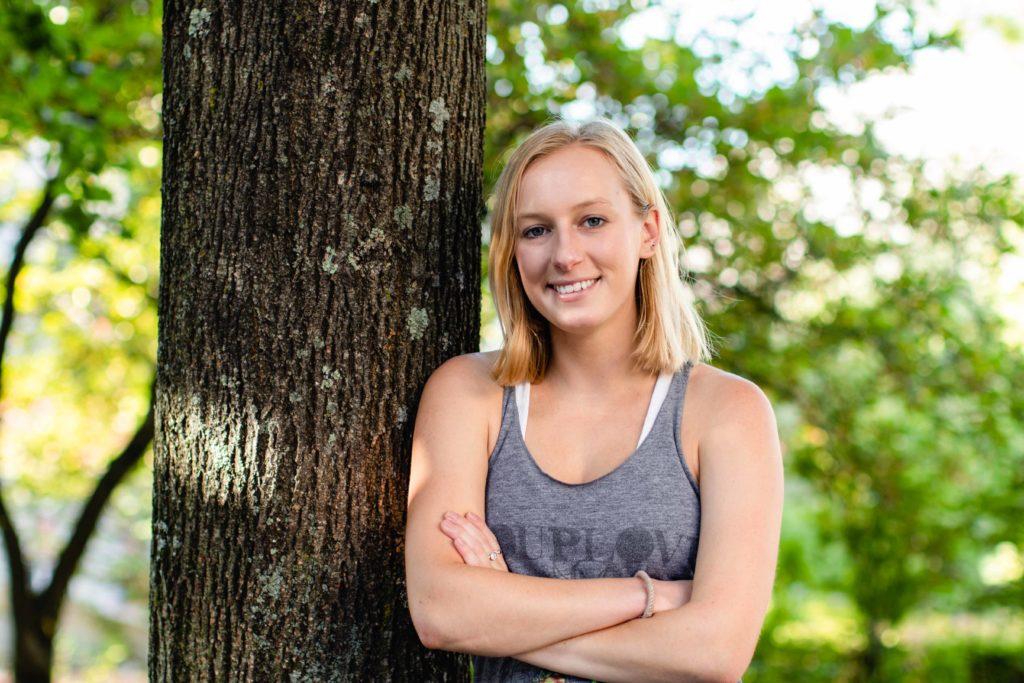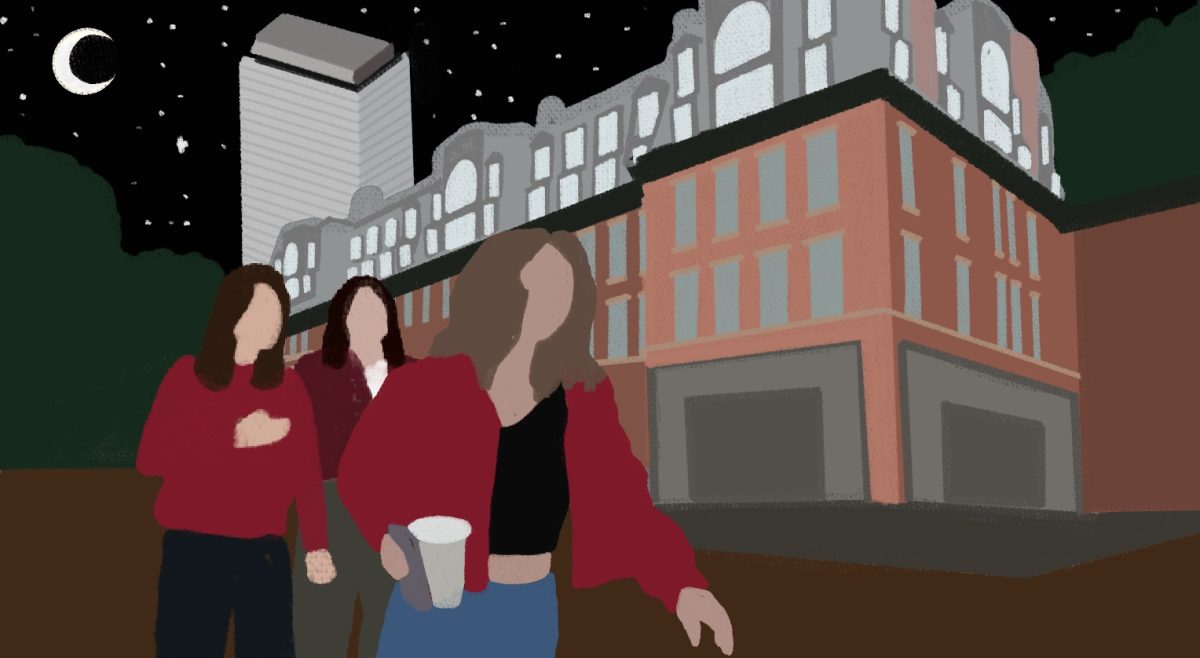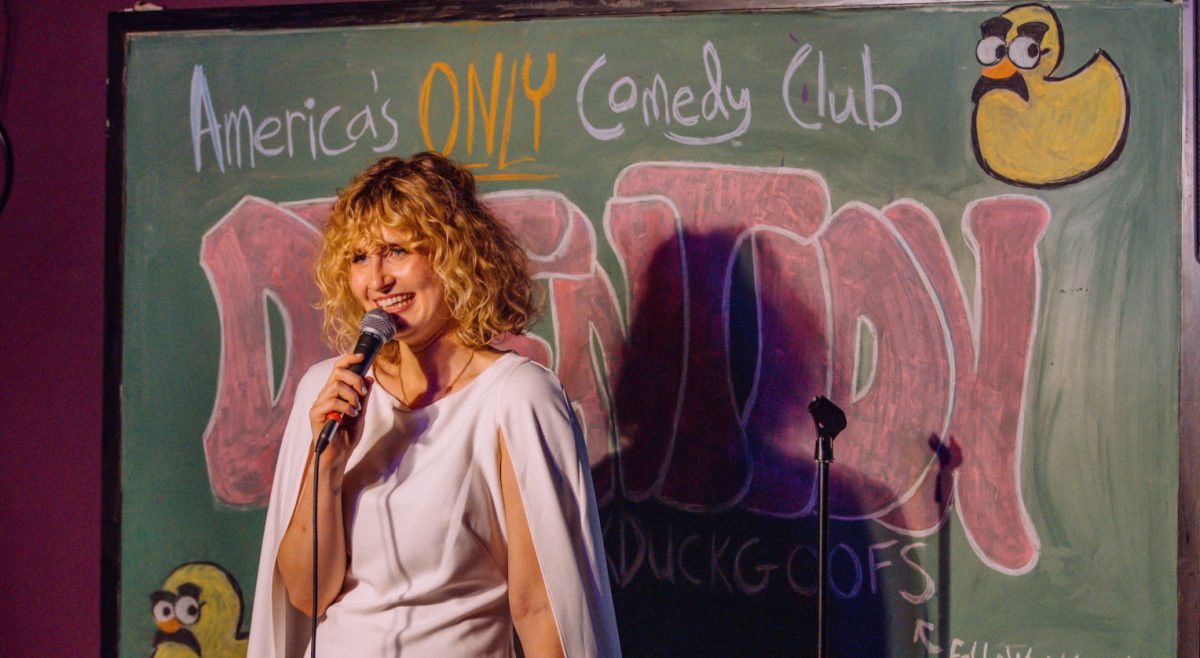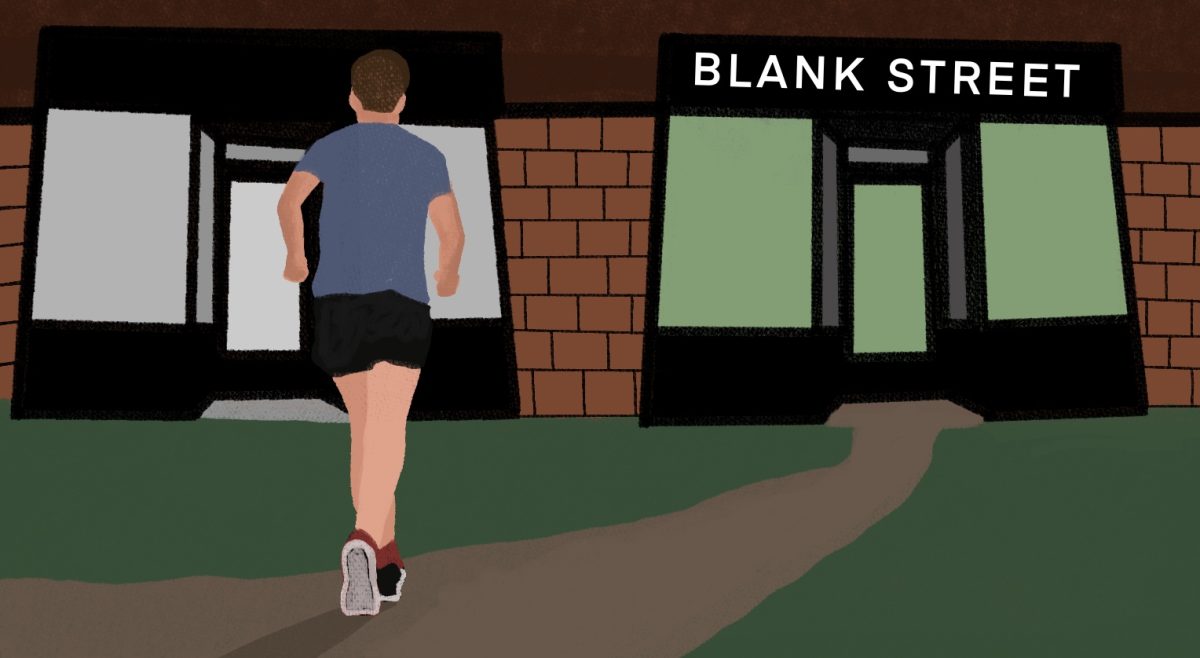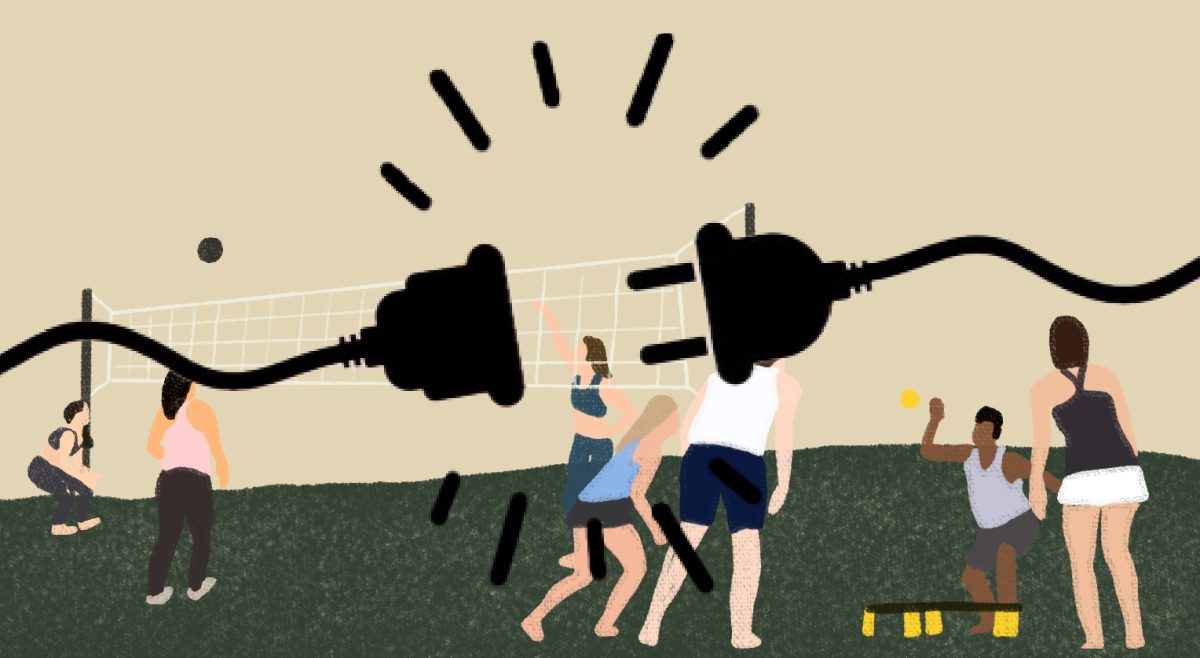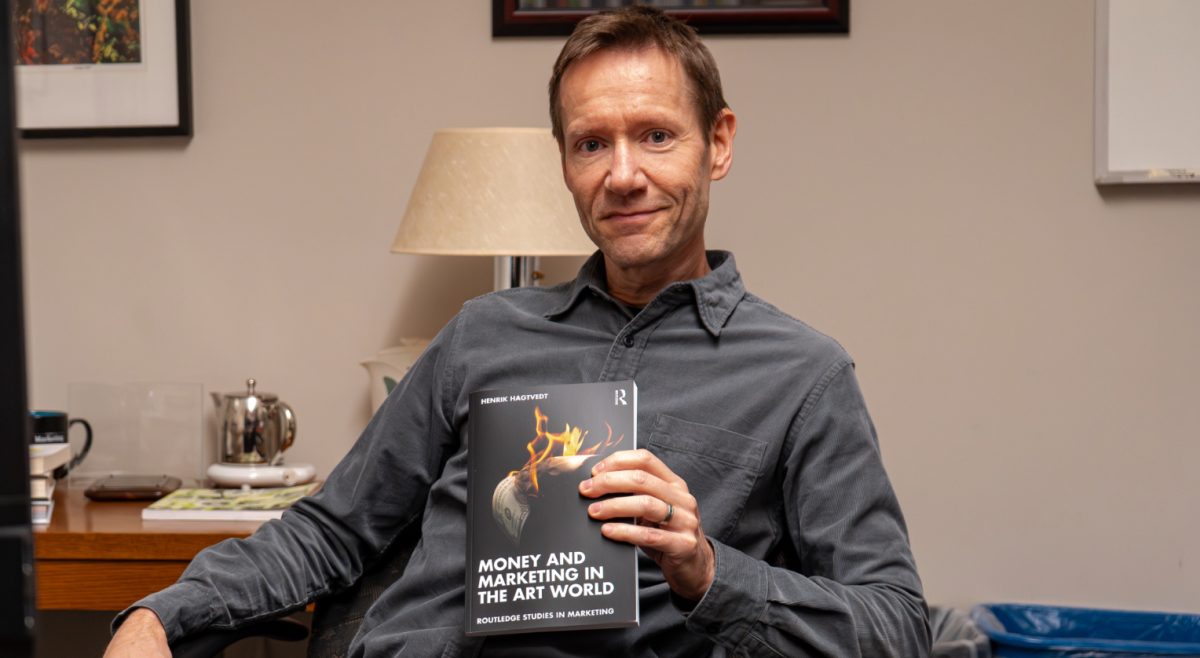Picture the worries that run through the mind of an 11-year-old on a given day—they’re likely grappling with the seemingly difficult decision of whether to pack a turkey or ham sandwich for lunch. But for Anne Marie Green, MCAS ’20, this deli-meat debate was the least of her worries. The fuel efficiency of cars around her, on the other hand, posed a true concern. So, she took it upon herself to find answers, surveying her neighbors on how many miles per gallon their cars ran on to get to the bottom of this pressing mystery.
This was just the beginning of Green’s environmental efforts. She read books about climate change, focused her fourth grade science project on water conservation, and loved being surrounded by nature. At the Friends School of Baltimore, a Quaker high school, she was a member of the UNICEF Club and became one of the co-club heads during her sophomore year.
It wasn’t until her sophomore year at Boston College, however, that Green began to consider a career in the field. After switching from psychology to a political science major, she enrolled in a course called Writing Out of Place, where she traveled to Mussoorie, India.
For one week, the class visited Delhi, Rishikesh, and Agra. The visit to Rishikesh and the Ganges river, Green says, was the most inspiring, as she pondered how such a holy city was cluttered with trash, sewage, and factory effluent. After writing a research paper on the Ganges River and how its sacredness interacts with its polluted state, she realized that environmental activism was something she wanted to pursue.
“Sustainability was always on my mind,” Green said. “In college, I found that environmental work was my calling and I really got into it.”
Green cites another class at BC that sparked her interest in making these changes. Taking PULSE with Matthew Kruger, she said, allowed her to discover and then write about the importance of environmental studies.
She also acknowledged Kruger’s influence, as he pushed her to create positive change as a political science major. Kruger emphasized the necessity for environmentally conscious people in all areas of the workforce, which provided Green with a sense of encouragement for pursuing this in her future.
“We need environmentalists everywhere,” she said. “[Kruger] helped solidify the path I wanted to go on, and taught me that there are many pathways of being [one.]”
The same year, she decided to pick up an environmental studies minor, and after taking a variety of sustainable development courses, Green began to notice the sheer volume of non-recyclable plastic utensils in the dining halls at BC. Aware of the weighty consequences of throwing away plastic every meal, Green was upset that her peers weren’t as conscious.
Green quickly turned her frustration into action, emailing BC Dining Services in search of a solution. Not thinking much would come of this, she was surprised when she quickly received a response. Within that same week, Green met with Beth Emery, director of Dining Services; Megan O’Neill, associate director of operations; and Juli Stelmaszyk, sustainability manager.
In this meeting, the staff acknowledged that abundant amounts of plastic in the dining halls was a problem they had struggled to tackle for years. Green asked how she could be more involved in helping the team find sustainable solutions to these problems. Shortly after, BC Dining hired Green to help them focus on waste issues on campus.
As the current student sustainability intern manager at BC Dining, Green works with six other BC student interns to develop initiatives that help make BC more environmentally friendly.
Stelmaszyk, who has been working as the sustainability manager at BC Dining Services since January of 2018, admired the prominence of Green’s work. Stelmaszyk has previously worked in Italy running an environmentally friendly food and gardens program and has appreciated Green’s dedication to sourcing local ingredients and reducing waste at BC.
“Anne Marie has really brought a passion to the team that resonates with students and dining employees alike,” Stelmaszyk said. “She brings a positive energy and a thoughtful focus to our initiatives. She has really helped take things from concept to implementation in the short time she has been with us.”
Their work is funded through the Henry P. Kendall Foundation grant, which encourages local food production and sourcing in New England. BC is part of a team, along with Tufts and Harvard, that was awarded a $250,000 Food Vision Prize to work with both new and emerging farmers to increase their land under cultivation.
During the spring of her sophomore year, Green began working at the Sierra Club, a grassroots organization with over 3.5 million supporters, where she assisted with advocacy projects and electric vehicle campaigns. That summer, Green began working on Green2Go, a reusable container program the BC Dining team piloted in Stuart dining hall last year.
“We just want to bring it to people’s attention that you should choose to reuse in the dining halls,” she said. “The Green2Go program helps students to choose the most environmental option, which is reuse.”
In addition to the Green2Go initiative, Green has helped develop a number of other useful practices in campus dining halls. The staff started selling bamboo utensils and metal straws, as well as keeping plastic straws behind the register with their “out of sight, out of mind” policy.
Samples of free food are offered to students every Wednesday through F.R.E.S.H. to Table. These food offerings are either fairly traded, regional, equitable, sustainable, or healthy, which are all practices that correlate to the F.R.E.S.H. acronym. Since its implementation, Green has been granted the opportunity to tour farms and seafood suppliers in the surrounding community.
“It’s been so fun to learn so much about local producers in Massachusetts,” she said. “It’s been really great to learn about food sustainability and disposables working through BC Dining while teaching others about it too.”
This past summer, Green also worked with the Boston Environment Department on its Zero Waste Boston initiative, which will seek to divert 80 percent of their waste from landfills.
“Working on that initiative was really cool,” she said. “I know I want to work in waste—that’s definitely where my passion lies.”
Now a senior, Green has chosen to write her thesis on waste, specifically on the American recycling system in the wake of China’s strict regulation on imports of waste through their National Sword Laws. An alternative energy class she took last year, taught by Jonathan Krones, granted her more insight into plastics and how recycling can be improved. Krones has experience working in and studying waste systems and is now the primary supervisor of Green’s thesis.
Green and BC’s additional attempts to educate students, including additional signs, have been successful in Green’s eyes, but she recognizes that becoming more sustainable as a school will continue to be a long process.
“I’m very proud of the work we’ve done,” Green said. “But sustainability obviously takes a long time and it takes everyone to get on board.”
One change Green said she would like to see in the future is stopping the culture of disposability on campus. Green feels as though students don’t consider how much trash they throw away.
“If we want to continue living the life that we do, we need to start paying attention to the environment,” Green said. “BC kids are good people and they care about things, but we often don’t pay attention to what we’re doing and how it affects the environment.”
Soon, BC Dining will start sourcing all of their plastic utensils from Preserve, which is the same company that makes the Green2Go containers on campus. These new utensils will be comprised of 100 percent recyclable material.
“This is definitely a very positive step,” Green said. “We’re supporting the recycling culture and giving a new life to plastic, which is great. That is a huge win in my mind.”
Through her abundance of her work both on and off campus, Green has sought to promote one simple message: The environment is important to every living thing that calls Earth home.
“It really bothers me when politicians, companies, and people say, ‘Let’s save the planet,’” Green said. “No, let’s save ourselves. We depend on this planet for our way of life.”
Featured Image by Jonathan Ye / Heights Editor

